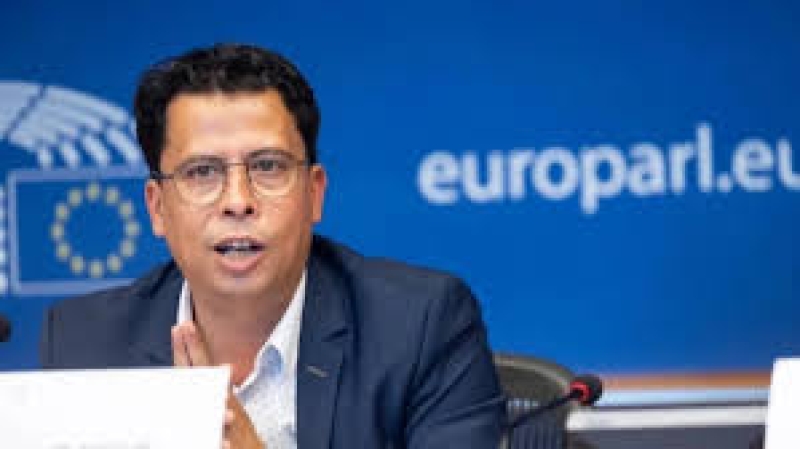- Young disabled people of BD vow to advocate for peace |
- World Leaders Urged to Defend Human Rights and Justice |
- Vegetable prices remain high, people buy in small quantities |
- Off-season watermelon brings bumper crop to Narail farmers |
- Climate Change Drives Deadly Floods, Storms, and Water Crises |
NY Rohingya conference aimed at political solution: Mounir Satouri

Highlighting the importance of increased funding for the Rohingya population, Chair of the European Parliament’s Subcommittee on Human Rights Mounir Satouri has expressed optimism that the high-level conference, scheduled to take place in New York on September 30, will contribute to finding a political solution.
The only long-term solution to the crisis lies in improving the situation in Myanmar and ensuring the safe and voluntary return of the displaced populations, he told UNB in an interview.
Satouri, who wrapped up his Bangladesh visit on Thursday night, said that objective remains one supported by the European Union (EU).
But the international community as a whole has to ensure that the conditions for such a return are made possible, he said, hoping that the high-level conference that will take place in New York on September 30 will contribute to finding a political solution.
Bangladesh hosts over 1.3 million Rohingya refugees who fled to escape persecution following the Myanmar military crackdown against the minority in 2017.
The situation in the refugee camps in Bangladesh is dire, with overcrowding, limited resources and ongoing humanitarian challenges.
Asked about the funding issue, Satouri said the EU has now become the main donor for this crisis and will have to mobilise other donors - probably also donors in the region - to try and offset the decline in funding.
Indeed, he said, it is neither possible nor normal that Bangladesh has had to bear the brunt of the withdrawal of US funds.
However, in the meantime, these refugees are here in Bangladesh and they have needs, Satouri said, adding that the international community must continue supporting Bangladesh.
Asked about their visit to the Rohingya camps in Cox’s Bazar, he said it was important to go and visit the camps, and it was also a way of sending a political message - to acknowledge and commend the efforts of the government of Bangladesh.
“We, of course, admire and welcome that Bangladesh has hosted over a million refugees on its territory for eight years now, and this effort on behalf of Bangladesh has often been overlooked,” Satouri said.
Regarding funding, he said the EU has committed to maintaining its level of funding to Bangladesh for the rising crisis.
The UN General Assembly will hold the high-level plenary meeting to address the crisis facing Rohingya Muslims and other minorities in Myanmar.
Chief Adviser Prof Muhammad Yunus will attend the meeting on September 30 that aims to sustain international attention, review the situation on the ground, and propose a concrete, time-bound plan for a sustainable resolution—including efforts to ensure the voluntary, safe and dignified return of displaced communities.
The Chief Adviser, who is scheduled to reach New York on September 22 to participate in the 80th session of the United Nations General Assembly (UNGA), has recently placed seven-point proposals, seeking collective efforts for charting a practical roadmap for the speedy, safe, dignified, voluntary and sustainable return of the Rohingyas to their homes in Rakhine as soon as possible.
"We must not be held hostage to mere rhetoric. The time for action is now," he said while speaking at the ‘Stakeholders Dialogue’ in Cox’s Bazar.
Prof Yunus said it is not only the responsibility of Bangladesh but also of the international community to share the burden of the Rohingya crisis, to reflect on the possible solutions and to play an active role in implementing them, reports UNB.
He said the Rohingya issue and its sustainable resolution must be kept alive on the global agenda as they need support until they return home.

